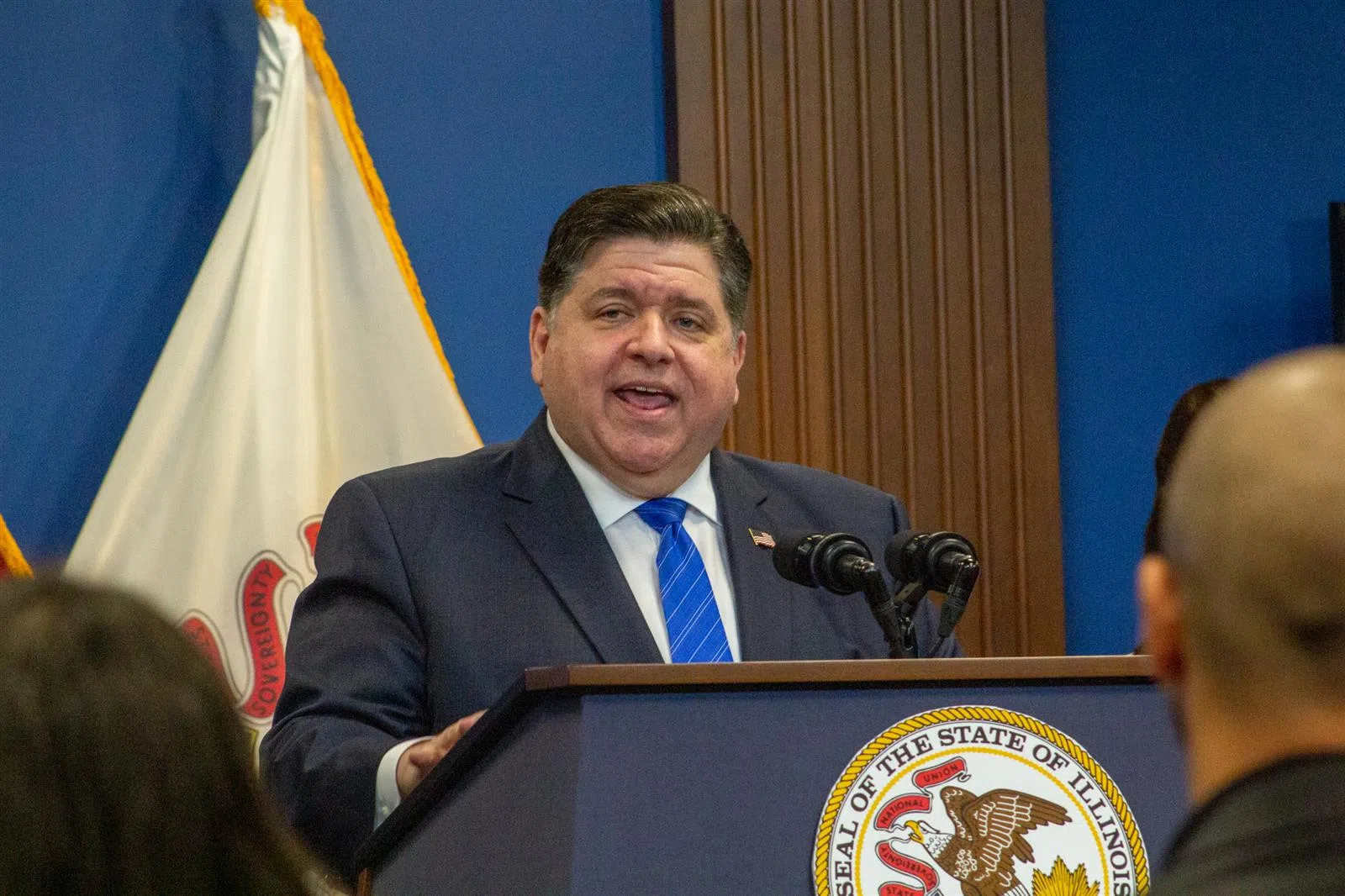SPRINGFIELD, Ill. (AP) — The $53.1 billion state budget that Illinois Gov. J.B. Pritzker signed into law this month is notable for its increased spending, something Republican critics were quick to point out.
But Pritzker and the legislative Democrats who sent him the fiscal plan for the year that begins July 1 maintain it’s balanced and responsible. Although it brings in about $1.2 billion in new taxes, proponents say the taxes don’t severely hit individual pocketbooks.
“There weren’t tax increases or revenue enhancements against everyday ordinary taxpayers,” said Chicago Democratic Sen. Elgie Sims, a budget negotiator. “What you saw was a recognition of, particularly as it relates to the sports betting industry, the explosion of the industry and some parity.”
Sims also pointed out the budget’s tax breaks. The income tax personal exemption will increase from $2,425 to $2,775 for 2024. The 1% sales tax on groceries will be eliminated in 2026. And there’s a new child tax credit for low-income families. Those with at least one child under 12 are eligible for the credit, which is 20% of the Earned Income Tax Credit and 40% next year.
Here are key tax changes:
Sports wagering tax — $200 million
Taxes increase on sportsbooks from a flat 15% to a graduated scale. There are now five different levels, ranging from 20% on adjusted gross revenue of less than $30 million, to 40% on gross revenue exceeding $200 million.
Sportsbooks representatives have raised the possibility of leaving the state rather than succumb to the increased fees, but Pritzker cast doubt on that possibility when questioned in Chicago. The tax in New York, he said, tops out at 51%.
“They’re not leaving New York, and they’re not leaving the other states,” Pritzker said. “We had a much lower tax rate than many of the largest of those markets. And we’re just kind of bringing ourselves more in line, but at a lower rate.”
Business operating loss capped — $526 million
Businesses will be limited to $500,000 in the amount of operating losses they can write off for tax purposes in a given year. However, they are allowed to deduct those losses over a period of 15 years.
The provision expires in three years, but that’s little comfort to business. Six years ago, budget-makers initiated the plan, although with a $100,000 cap. It, too, was a three-year plan, as was the three-year plan that replaced it.
“It’s $500,000. That’s better than 100,000. But we wish it were unlimited,” said Mark Denzler, president and CEO of the Illinois Manufacturers’ Association. “We wish we could go back to where we were.”
Video gambling tax increase — $35 million
Income from video gambling terminals had been taxed at 34%, with 29% going to the state to be used on capital construction projects and 5% going to local municipalities. The new law increases the tax to 35%, with the 1% difference boosting state construction.
Remote seller sales tax — $400 million
This is a boon for local cities and counties that charge their own sales tax.
When a retailer that is fulfilling a remote — typically online — order must ship from somewhere out of state, the retailer must now collect not only the 6.25% state sales tax, but any local option tax that applies at the shipment’s destination.
“You pay it on Main Street; you might as well pay it when you click to purchase from home,” said Brad Cole, CEO of the Illinois Municipal League.
Nearly 500 local communities charge a local sales tax — on average, about 2%.
Retailers’ discount capped — $101 million
Retail store operators must collect the state’s 6.25% sales tax, along with local taxes, on purchases. They’re allowed to keep 1.75% to cover administrative costs. The new law caps this discount at $1,000 per month starting Jan. 1, 2025.
In exchange, lawmakers limited the amount of fees credit card companies may charge on the sales tax portion of transactions — which most stores pay for the customer — and expanded the types of treatments and vaccinations that can be administered by pharmacists.
Re-renters hotel tax — $25 million
Online hospitality retailers that buy blocks of hotel rooms, sometimes at a discount, and resell them at a markup will now have to collect state hotel tax on the difference. Previously they paid tax only on the price the hotel originally charged.
Lease stream — $20 million
Leasing property will now carry a sales tax. Those taxes were paid when the person bought the property they intended to lease under the old law. The new provision exempts some cases in Chicago that are subject to a local lease tax enacted prior to 2023.


